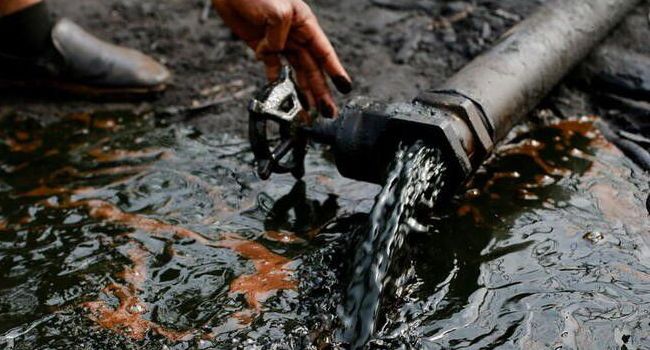Business
Nigeria faces financial trouble, as IMF warns African oil producing nations

The International Monetary Fund (IMF) has warned oil exporting countries in Africa to save earnings from the boom in crude oil price, as transition to low-carbon energy sources could drag turnover down.
In multiple media reports on Wednesday, the IMF said African oil exporters should create a buffer to manage large swings in oil prices.
What you need to know
Recall that Brent crude oil price had surged nearly to $140 a barrel in March, handing several oil producing countries a whopping sum – but it is $83.42 per barrel as of the time of filing this report.
Saudi Arabia’s Aramco had benefited from the boom in oil price, recording an historic gain of $48.4 billion in the second quarter of 2022 and $87.9 billion in the first half of 2022, compared to $25.5 billion and $47.2 billion recorded respectively for the same periods in 2021.
However, on the part of Nigeria, the country’s oil firm, Nigerian National Petroleum Company (NNPC) Limited, has failed to remit any amount to the federation account.
Kaduna State governor, Nasir El-Rufai, had stated, “This year, NNPC has not brought N20,000 to the federation account.
“We are living on taxes. It is PPTs, royalties, income tax and VAT that is keeping this country going because NNPC claims that subsidy has taken all the oil revenues. I don’t believe it.”
This has contributed to the depletion of foreign reserves and dollar scarcity in Nigeria. It also depreciated Nigeria’s foreign trade, with oil exports falling from N5.91 trillion in Q2 2022 to N4.66 trillion in Q3 2022.
READ ALSO:IMF proffers solution to Nigeria’s forex crises, Naira depreciation
With NNPC failing to remit into the federation account despite the oil boom, the government will have more to worry about if western countries hasten their transition to clean energy.
IMF sees African countries losing revenue to clean energy
In the report, IMF said building buffers will help African oil exporters to navigate the transition towards clean energy, “As countries transition to low-carbon energy sources, oil revenues could sharply decline.
“By 2030, oil revenues in the region could fall by as much as a quarter and by 2050, by half. Building buffers now would help the region’s oil exporters navigate the transition toward clean energy while managing oil price fluctuations.”
It was gathered that African oil exporters haven’t accumulated enough savings to protect their economy against unpredictable oil price changes.
Ripples Nigeria notes that during the outbreak of COVID-19, oil price had significantly dropped to $23 per barrel in the second quarter of 2020 before rising close to $140 in the first quarter of 2022, but now currently trades at $83.42 per barrel.
Explaining the situation and financial risk countries in the region are likely to face, IMF said, “Oil exporters in sub-Saharan Africa should target buffers of around 5 to 10 percent of gross domestic product to manage large swings in oil prices.
“For many countries, this means they will need to maintain annual fiscal surpluses up to 1 percent per annum over a 10-year period.
“As noted in our latest Regional Economic Outlook, oil prices have fluctuated from lows of $23 per barrel to a peak of $120 over the last two years, resulting in highly uncertain revenues in oil-dependent economies.
“However, most oil exporters in the region haven’t accumulated enough savings to insure against unpredictable oil price changes.
“In fact, sovereign wealth funds in sub-Saharan Africa hold assets of just 1.8 percent of gross domestic product—compared to 72 percent in the Middle East and North Africa—forcing countries to borrow or draw down financial assets when oil prices fall.
“As a result, in the decade through 2020, the region’s oil producers have grown over 2 percentage points slower per year than non-resource intensive countries. Debt service costs have also been almost twice as high than in other sub-Saharan African countries.”
Join the conversation
Support Ripples Nigeria, hold up solutions journalism
Balanced, fearless journalism driven by data comes at huge financial costs.
As a media platform, we hold leadership accountable and will not trade the right to press freedom and free speech for a piece of cake.
If you like what we do, and are ready to uphold solutions journalism, kindly donate to the Ripples Nigeria cause.
Your support would help to ensure that citizens and institutions continue to have free access to credible and reliable information for societal development.






















